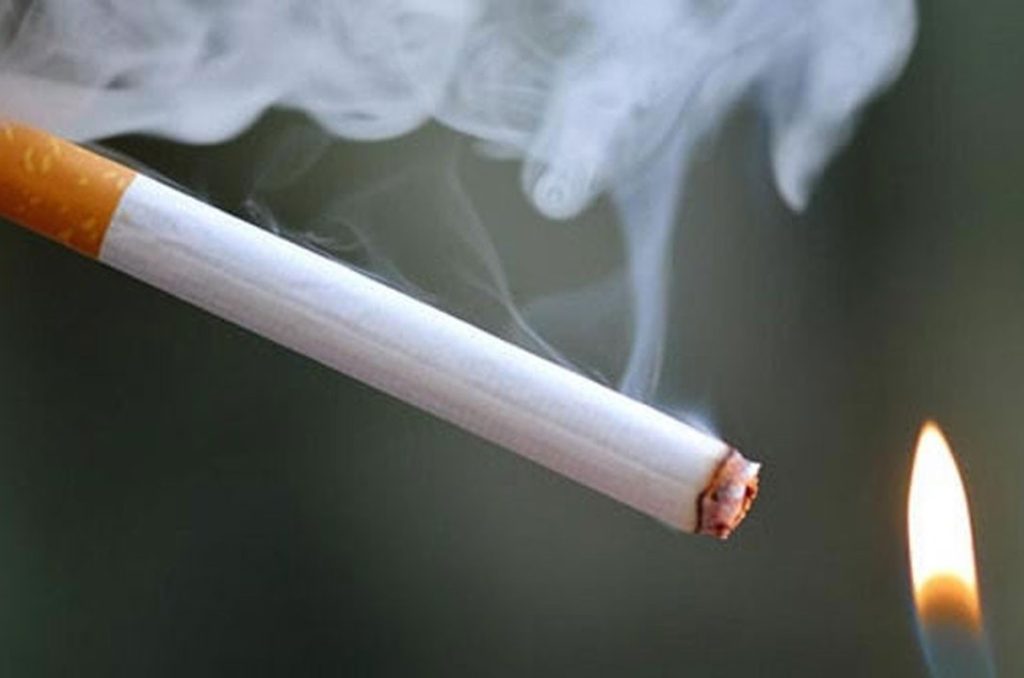The World Health Organisation (WHO) is optimistic that Nigeria will one day enact a ban and become free of tobacco products.
Dr Walter Mulombo, the Country Representative to Nigeria, expressed this sentiment at a press conference held to commemorate the 2024 World No Tobacco Day, themed “Protecting Children from Tobacco Industry Interference.”
He said, “Everyone can work toward ensuring the future generation is free from the dangers of tobacco and nicotine addiction.
“I dream of the day when tobacco products will be banned in Nigeria, not allowed to be sold or bought.”
Mulombo stated that the tobacco industry must be held accountable for the damage it inflicts on the economy, health, and environment. He highlighted that tobacco usage is responsible for over 8 million deaths, with more than 7 million directly attributed to its use, while around 1.2 million non-smokers succumb to second-hand smoke exposure.
The WHO released a report indicating that an estimated 37 million children aged 13 to 15 years use tobacco, and in many countries, the rate of e-cigarette use among adolescents exceeds that of adults. The report revealed that the majority of adult smokers initiated smoking at a young age and became addicted before reaching 21.
“This indicates that the industry targets youths for a lifetime of profits, creating a new wave of addiction,” Mulombo said
Mulombo noted that the tobacco industry has developed methods to attract young people through various products, including cigarettes, cigarillos, and shisha, as well as newer offerings such as e-cigarettes, heated tobacco products, and nicotine pouches. He further remarked that the enhanced packaging has made these products even more appealing to young people.
“Companies rapidly launch new products that sidestep, or are not included, in current laws, and use every available means to expand their market share before regulations can catch up with them.
“Unfortunately, these tactics are working. Evidence from around the world shows an alarming uptake by children of some products, such as e-cigarettes.
“The tobacco industry is succeeding in its efforts to create a new generation of young people who smoke, vape, suck nicotine pouches or use snuff.”
Professor Ali Pate, the Coordinating Minister of Health and Social Welfare, remarked that the 2012 Global Adult Tobacco Survey (GATS) indicates that 4.5 million Nigerians aged 15 and above currently use tobacco products, with 3.1 million being smokers.
Pate added, “The Global Youth Tobacco Survey (GYTS) conducted in 2008 across five states in Nigeria shows the prevalence of tobacco use among adolescents aged 13 to 15 years, ranging from 13.1 per cent to 23.3 per cent in Lagos State and Cross River.”
“Exposure to tobacco smoke also goes as far as exposing children in uterus, even before they are given birth to.
“Exposure of the mother to tobacco smoke can cause poor birth outcomes and affect lung, cardiovascular and brain development of the baby.
“This can also increase the risk of obesity, behavioural problems and cardiovascular disease later in life.”
Mr Akinbode Oluwafemi, the Chairman of the Nigeria Tobacco Control Alliance said Nigeria must respond and enforce laws because children are being targeted by harmful products.
“We have the National Tobacco Control Act, we have the National Tobacco Regulation 2019. We are grateful to the Nigerian Film and Video Censors Board (NFVCB) on the regulation of smoking in movies.
“We want government to enforce those laws as a way of protecting our children. As at the time we were enacting the National Tobacco Control Act 2015, a lot has changed with the tobacco industry.
“They continue to mutate and come in various forms so it may be time for us to begin to engage on how to strengthen those laws.”
Dr Shaibu Husseini, the Executive Secretary of NFVCB, represented by Mrs Hasina Nasir, stated that regulatory bodies have implemented policies to raise awareness among the public about the adverse effects of tobacco use. She highlighted that tobacco industries, under the guise of “entertainment”, promote and advertise their products.
“Today, the film industry is facing an emergency that requires bold and ambitious actions from all of us as parents, guardians and stakeholders.
“Therefore, after a series of engagements, the NFVCB decided to partner with CAPPA to make subsidiary legislation to control the glamourisation of tobacco products in films, music videos and skits
“The proposed legislation has been forwarded to the Federal Ministry of Justice for gazetting,” he added.

